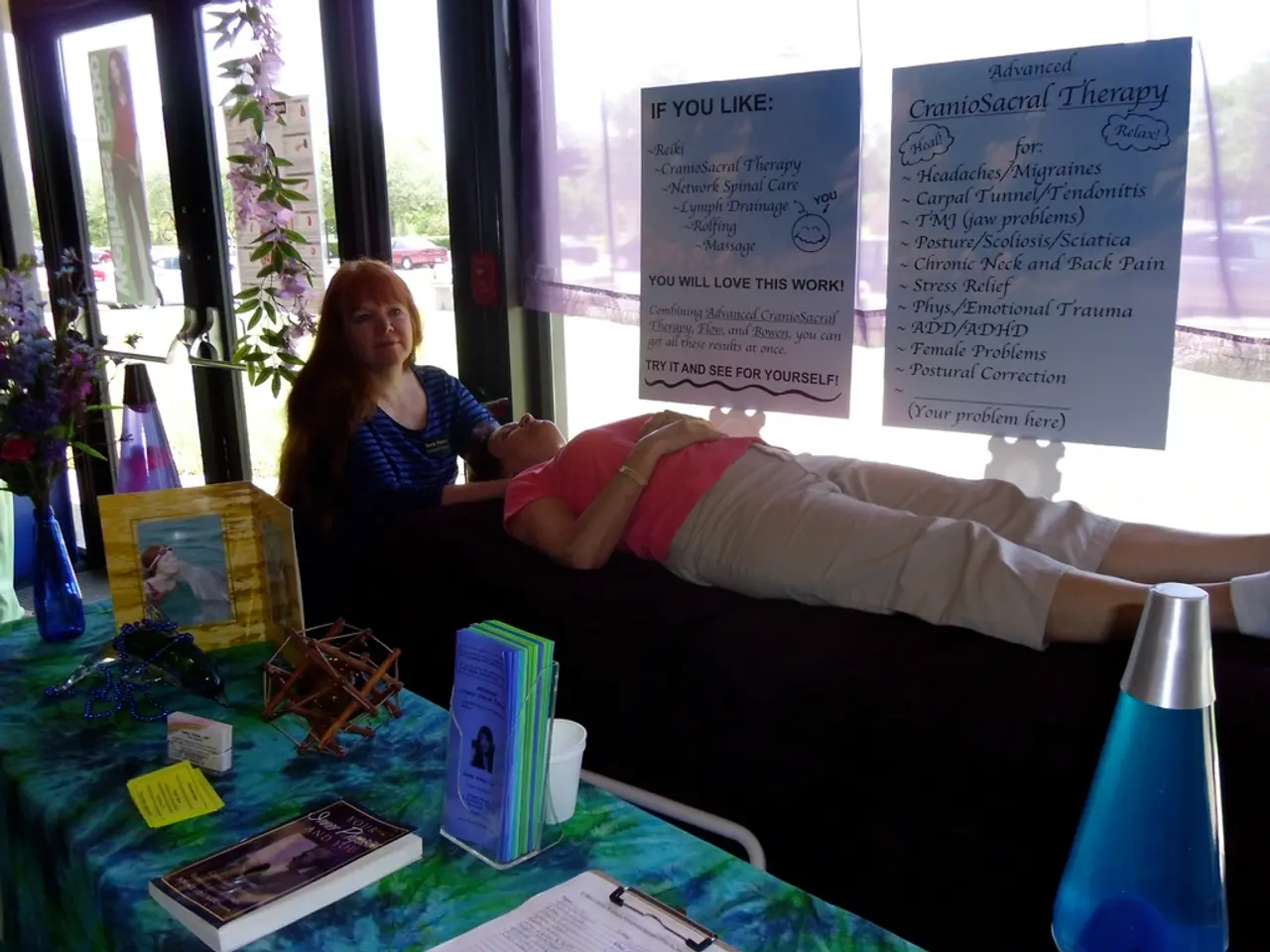Uncovering Methods to Secure Gratis Online Counseling for Anxiety and Depression Issues
In the realm of mental health care, a significant shift is underway as online therapy emerges as a viable and effective alternative to traditional in-person sessions. Research consistently shows that online therapy is generally as effective as its face-to-face counterpart for various common mental health conditions such as depression, anxiety, PTSD, and relationship issues.
Key studies and reviews, including a large-scale UK study of 27,500 patients, support this assertion. For instance, virtual cognitive behavioural therapy (CBT) has been demonstrated to be just as effective as in-person CBT for depression and anxiety. Online therapy has even shown success in specialized areas like eating disorders, with comparable improvements in behaviour, weight, and client satisfaction to in-person treatment.
Telepsychiatry has proven effective and safe for conditions like bipolar disorder and some psychotic disorders, with symptom reduction and quality of life improvements matching those of in-person care. However, it's important to note that certain high-risk cases, such as individuals with active suicidal thoughts, severe psychosis, or abuse, may benefit more from in-person care due to the need for closer monitoring and safety measures.
Online therapy offers practical advantages that cater to modern lifestyles. It provides greater accessibility for people in rural or remote areas, overcoming geographic barriers. The ability to maintain anonymity and privacy helps clients open up without fear of community stigma. Flexible scheduling also suits busy lifestyles and couples who struggle to coordinate in-person appointments.
In addition to these benefits, many employers offer access to counseling and talking therapies through employee assistance programs (EAPs). Many college and university health centers offer free or low-cost counseling services to students. Mental health organizations run online courses, webinars, and workshops about specific topics, providing information on solutions and coping mechanisms, although typically without insurance coverage.
Online forums provide a platform for individuals to connect with peers who are in or have experienced similar situations, although they may not be moderated by trained therapists. Some organizations and therapists offer free online therapy sessions to people experiencing anxiety, depression, and other mental health conditions. State health departments may list local mental health services, some of which may offer free online therapy.
Moreover, research from 2020 suggests that telemental health should be a permanent fixture and more widely available. Mobile apps offer various features for mental health support, such as guided meditation, tools for mental well-being, and connections with therapists or peers. Some apps may be covered by insurance.
In summary, online therapy is a highly effective alternative for many individuals and conditions, offering comparable clinical benefits to in-person therapy augmented by greater convenience and accessibility. That said, in-person therapy remains preferable for complex and high-risk situations that require more intensive clinical management.
- The research consistently shows that online therapy is generally as effective as its face-to-face counterpart for various common mental health conditions like asthma, depression, anxiety, PTSD, and relationship issues.
- Virtual cognitive behavioral therapy (CBT) has been demonstrated to be just as effective as in-person CBT for depression and anxiety.
- Online therapy has even shown success in specialized areas like eating disorders, with comparable improvements in behavior, weight, and client satisfaction to in-person treatment.
- Telepsychiatry has proven effective and safe for conditions like bipolar disorder and some psychotic disorders, with symptom reduction and quality of life improvements matching those of in-person care.
- Online forums provide a platform for individuals to connect with peers who are in or have experienced similar situations, although they may not be moderated by trained therapists.
- Some organizations and therapists offer free online therapy sessions to people experiencing anxiety, depression, and other mental health conditions, such as those suffering from asthma or struggling with mental-health related financial issues (finance, financial).




